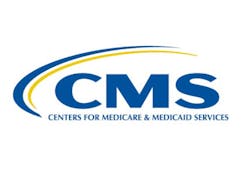As Donald Trump officially gets sworn in today as the 45th president of the U.S., key healthcare officials in Obama’s administration continue to say their goodbyes as their jobs expire.
Andy Slavitt, now officially the former Centers for Medicare and Medicaid Services (CMS) Acting Administrator, said goodbye to his staff and colleagues in a Jan. 17 commentary, posted to CMS’ authorized blog. The post started with a personal touch, talking about how CMS has affected him, being away from his family in Minnesota to work in Washington, D.C. each week. He said, “I promised myself that even though I could never match the decades so many of you have contributed here at CMS, my aim would be to try to have the impact of 20 years in the two I had ahead of me by figuring out where I could help the most and then giving it everything I had. I know I didn’t succeed in everything I tried to take on, but the team here at CMS was generous and patient.”
Slavitt then looked at what was achieved, collaboratively, in his time at CMS. “Getting closer to our customers. Executing with passion. Working together in new ways across our silos. Not being afraid to take on challenges and do our best work. Opening up and exposing ourselves transparently so we could get closer to the action. Closer to where Americans get their care. Listening to all the voices impacted by our work. Measuring ourselves not by our own standards, but by the standards of the outside world. Being self-critical instead of defensive.” He noted, “The country needs a visible approachable government they can feel confident in, and the healthcare system needs an approachable and open CMS to partner with them.”
Slavitt has been with CMS since July 2014, serving first as Principal Deputy Administrator, then moving to Acting Administrator the following February. It has been confirmed that Patrick Conway, M.D., previously deputy administrator for innovation and quality and CMS chief medical officer, will take over for Slavitt in the near-term. Trump’s pick to run CMS, Seema Verma, will have hearings on her nomination as Administrator in the coming weeks.
Speaking on the matter of Verma, Slavitt wrote in his blog, “I had the opportunity to spend time with Seema Verma, the nominee for Administrator of CMS. If confirmed, she is excited to meet and work with the staff and I believe understands the great honor granted to her by the President-elect in appointing her to work at CMS. I told her what she will soon see: you are the strongest workforce in healthcare and, one could argue, what you deliver is at the highest levels of any government agency. Welcome her the same way you welcomed me: Listen to the new team’s priorities and teach them yours.”
Touching on achievements, Slavitt then wrote about several related to health IT, accomplished by his staff and colleagues:
- You completed one of the most far reaching implementations in healthcare– ICD- 10– without a hitch and with wide praise from physicians.
- You began implementing the complex laws in MACRA with class and to accolades.
- You have begun to change how we pay for care, launching, listening and re-launching new approaches to increase quality, improve coordination and teamwork, and reduce unnecessary variation.
- You became the undisputed industry leader in data transparency, driving the industry to improve by providing the tools and listening to their needs.
- You used Medicare payments, quality and programs to accomplish important aims: investments in people with lower socioeconomic status, more investment in primary care and integrated mental health.
- You invested in the future and peered around corners– whether on fraud prevention, better analysis of Medicare cost trends, prevention models, or cybersecurity. Thanks to our “guardian program” – no major cyber issues have occurred. I won’t be around to ask, but keep it up!
- And what makes me very proud is how you have innovated. Innovation to make sure people are treated with dignity using cool technology. Whether it’s Blue Button, MAGI in the cloud, automated Medicaid enrollment, TMSIS, cms.gov, Fraud prevention 2.0, or Compare site, CMS is a modern tech-enabled customer service organization that delivers the goods.
Also this week, Slavitt co-authored a blog with departing National Coordinator for Health IT, Vindell Washington, M.D., focused mostly on “enabling ready and secure data access, to support a modern, value-based healthcare system.” Washington and Slavitt noted in their piece, “While the tools are improving, some clinicians remain frustrated by the limited usability of their technology and data, from their inability to easily enter and access key information when and where they need it at the point of care to challenges in accessing timely feedback on the quality of care in their practice.”
At ONC, Washington will be replaced by Jon White, M.D., previously Deputy National Coordinator, in the near-term. Washington, an Obama appointee, had a short run as National Coordinator, serving for just five months following Dr. Karen DeSalvo’s full-time move to HHS.
Their co-blog post continued, “We must overcome these challenges to enable clinicians to continuously improve quality and to ensure the nation gets more value from each healthcare dollar. That’s why HHS envisions a future where clinicians in a multi-payer environment obtain actionable, reliable, and comprehensive feedback data regardless of who pays for their patients’ care. HHS also envisions streamlined quality reporting, where clinicians collect data as part of the normal course and share it at the push of a button with any authorized party. Finally, HHS will continue to work towards minimizing the financial and administrative burden of collecting and reporting information on clinicians and practices, especially small practices and those in rural and underserved areas.”
They wrote that the “federal government should only play a modest role in the ecosystem necessary to support patients and physicians. We believe that ecosystem requires the following six elements to ensure a data-rich, patient-centered, and value-based healthcare system”:
- Seamless interaction between point of care solutions and other entities, including through the use of standard APIs.
- Growth of third-party entities that can meet provider data access and reporting needs.
- Use of low-cost shared services necessary for aggregating and linking data.
- Greater data transparency and data consolidation.
- Standardization of key patient data needed for quality measurement.
- Alignment around how quality is measured and reported across payers.
Meanwhile, Sylvia Mathews Burwell, who was sworn in as the 22nd Secretary of Health & Human Services on June 9, 2014, delivered an 18-page Cabinet exit memo earlier this month. Burwell is expected to be replaced by Rep. Tom Price, M.D., (R-GA), who just had a Senate hearing this week on his nomination as HHS Secretary. Another hearing is scheduled for next week.


